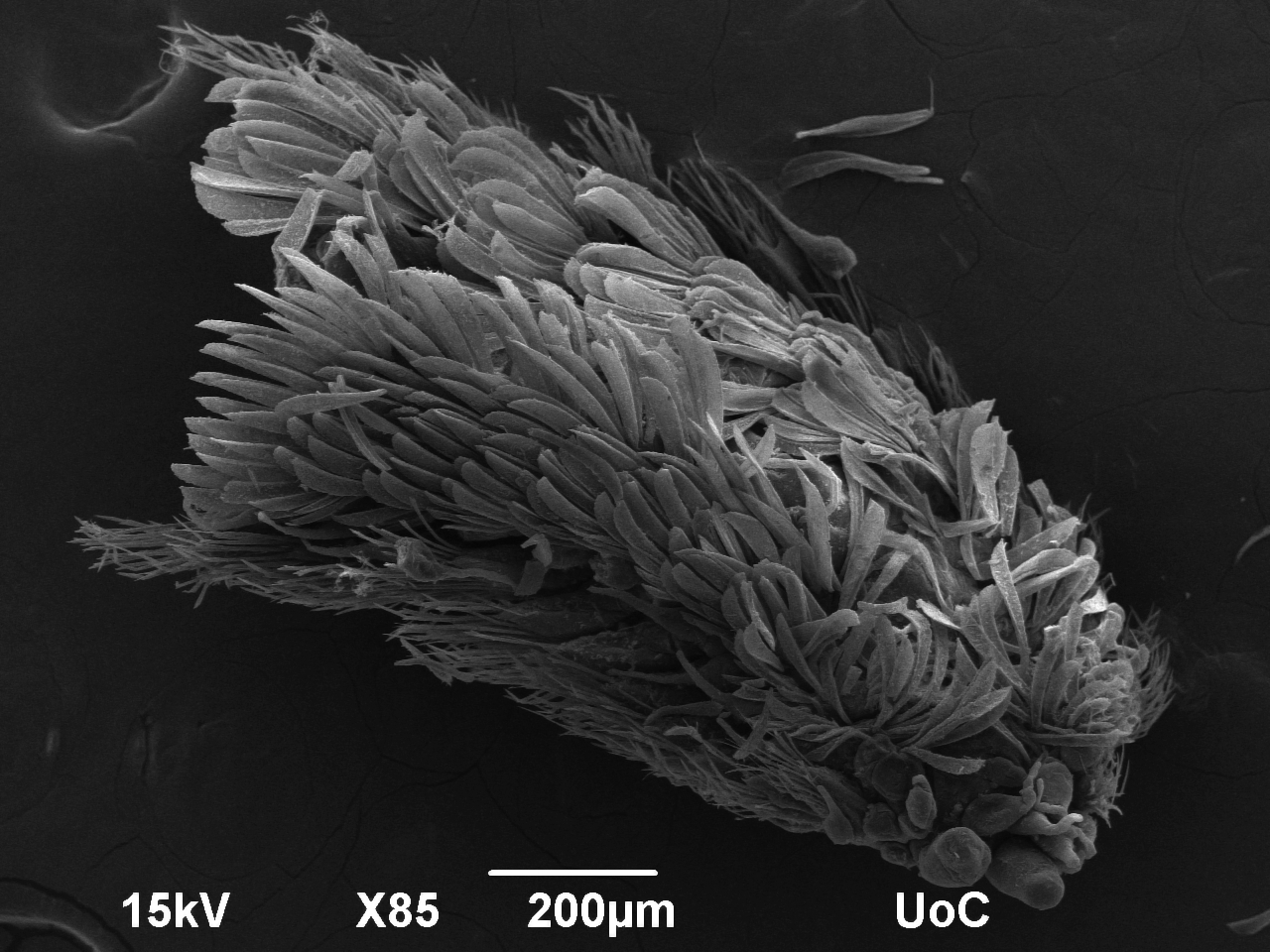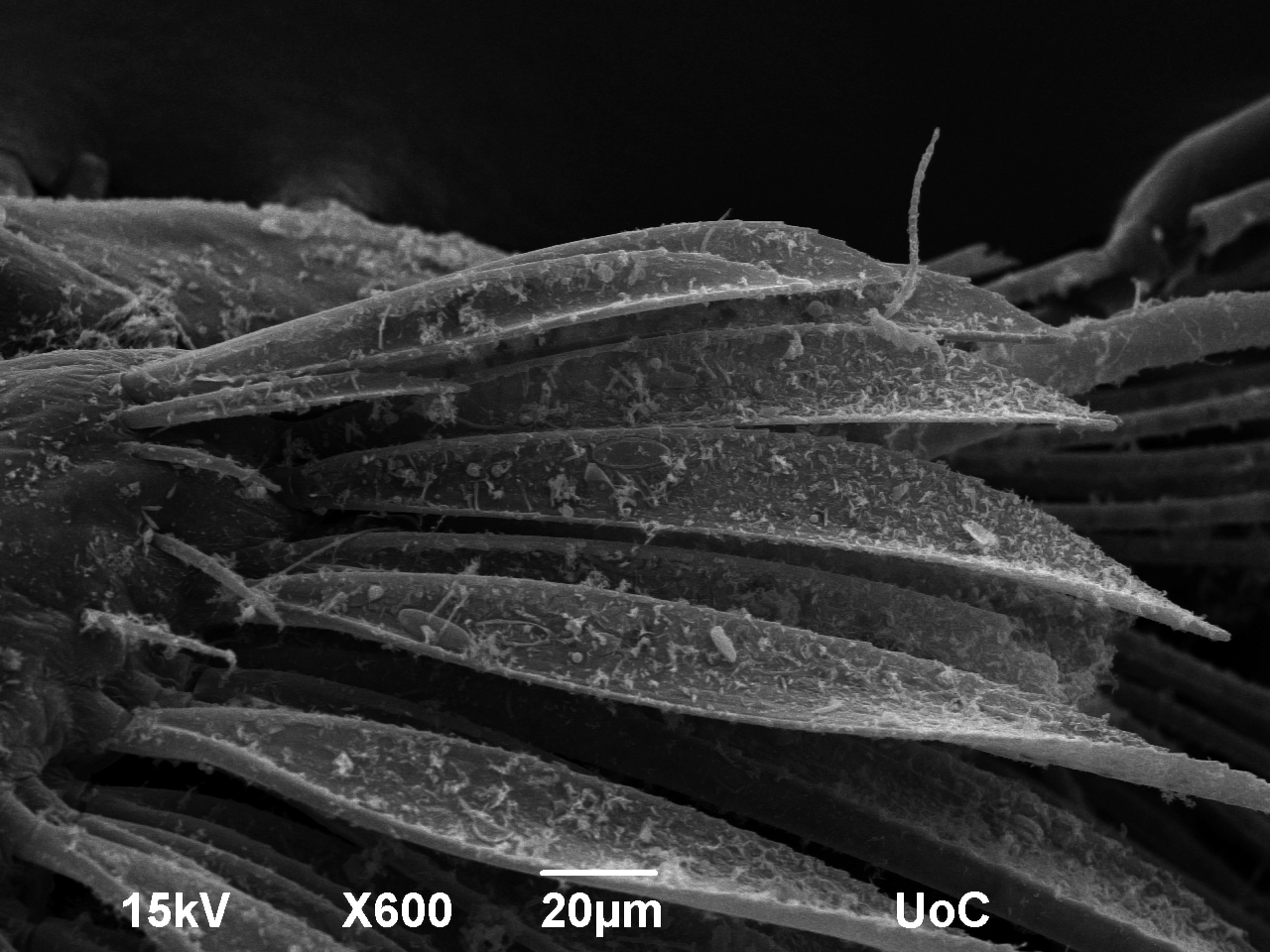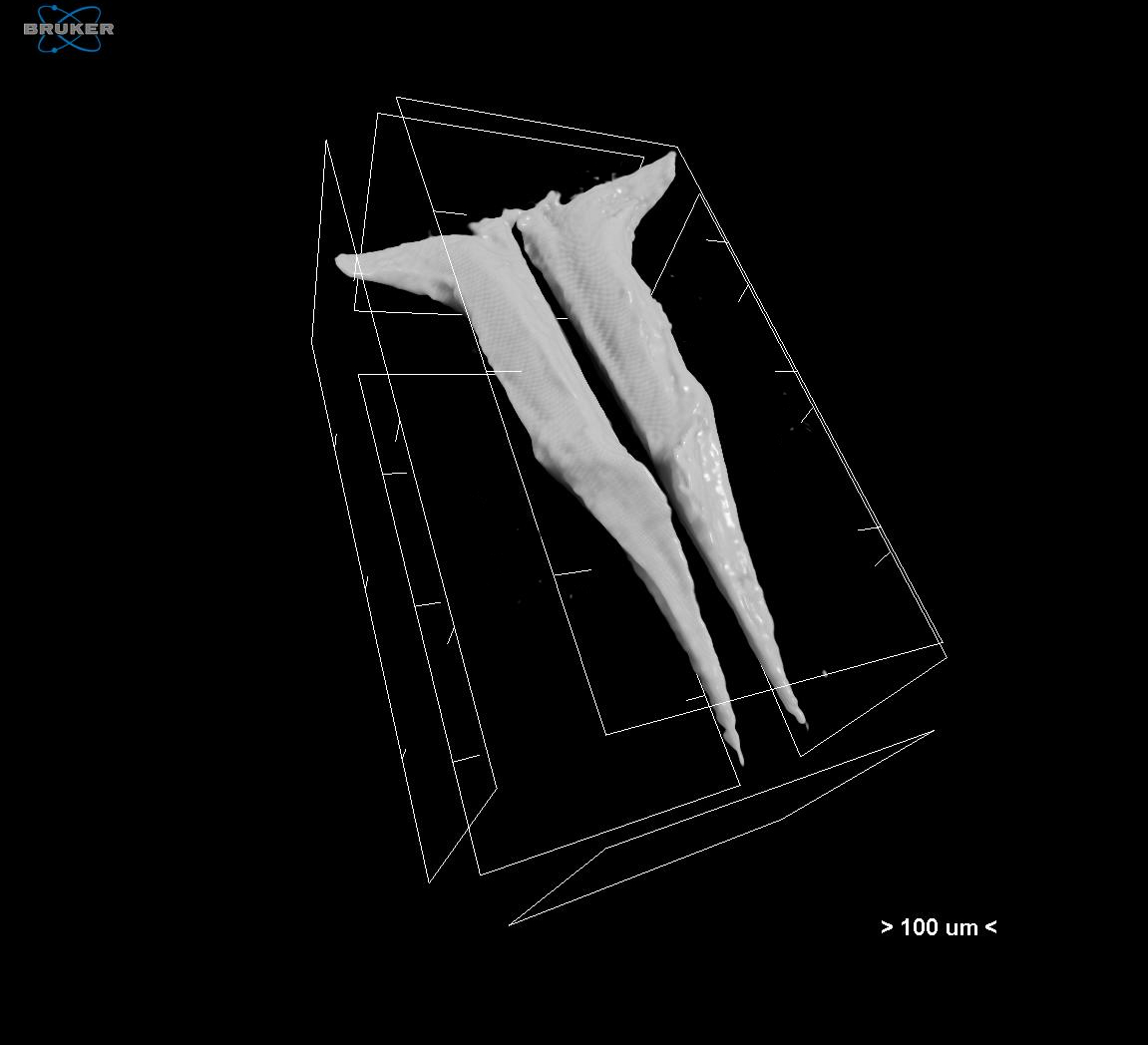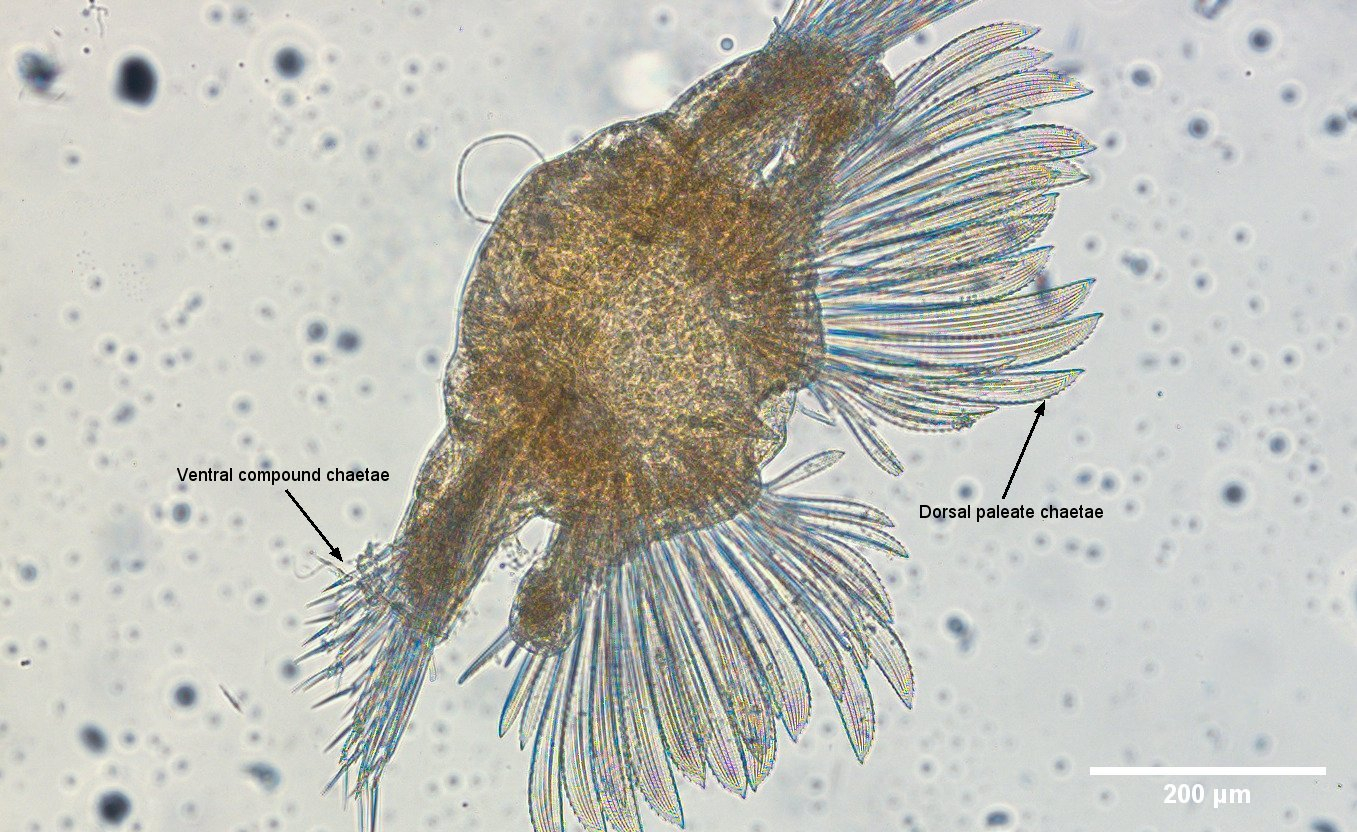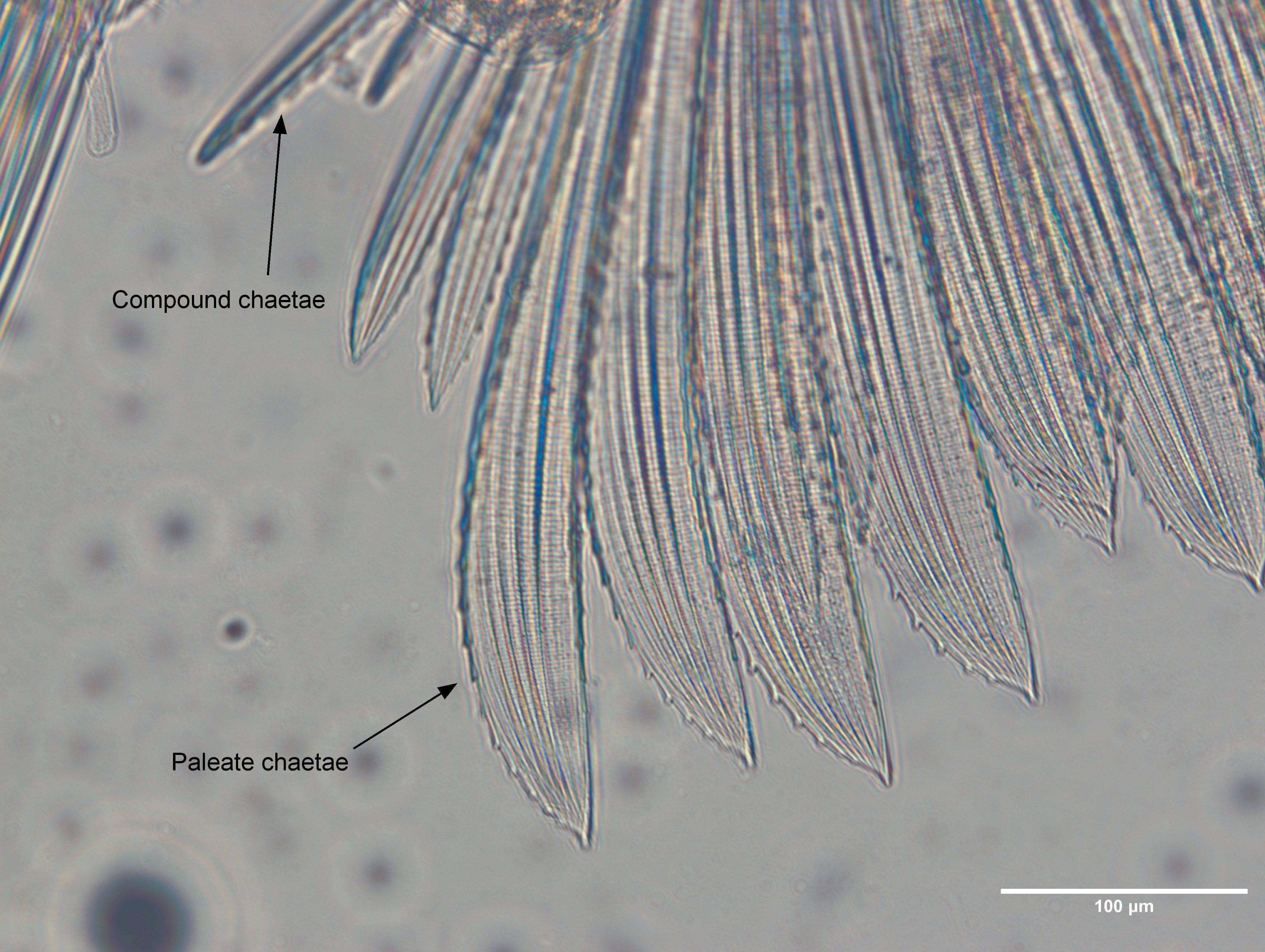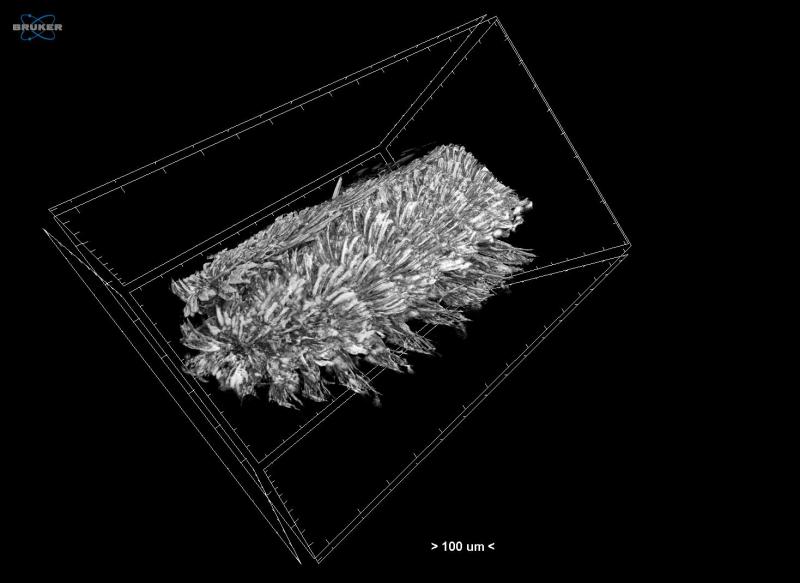
Keklikoglou, K.; Arvanitidis, C.; Chatzigeorgiou, G.; Chatzinikolaou, E.; Karagiannidis, E.; Koletsa, T.; Magoulas, A.; Makris, K.; Mavrothalassitis, G.; Papanagnou, E.-D.; Papazoglou, A.S.; Pavloudi, C.; Trougakos, I.P.; Vasileiadou, K.; Vogiatzi, A. Micro-CT for Biological and Biomedical Studies: A Comparison of Imaging Techniques. J. Imaging 2021, 7, 172. https://doi.org/10.3390/jimaging7090172
Polychaetes are one of the most abundant benthic taxa in marine habitats. The systematic identification of this taxon is based on external and internal characteristics such as chaetae, parapodia and jaws. In this project, several imaging techniques have been used for the visualisation of taxonomic characteristics of the Chrysopetalum debile (Grube, 1855). Details about the imaging techniques used in this project can be found in Keklikoglou, K.; Arvanitidis, C.; Chatzigeorgiou, G.; Chatzinikolaou, E.; Karagiannidis, E.; Koletsa, T.; Magoulas, A.; Makris, K.; Mavrothalassitis, G.; Papanagnou, E.-D.; Papazoglou, A.S.; Pavloudi, C.; Trougakos, I.P.; Vasileiadou, K.; Vogiatzi, A. Micro-CT for Biological and Biomedical Studies: A Comparison of Imaging Techniques. J. Imaging 2021, 7, 172. https://doi.org/10.3390/jimaging7090172
SEM has the ability to produce high resolution images of the specimen. These samples were fixed in 98% ethanol followed by dry ethanol on room temperature twice 20 min/time. Dehydrated samples were critical point dried (Baltec CPD 030) and mounted on stubs prior to sputter coating with 20 nm thick gold (Baltec CPD 050). Visualisation of the sample was carried out using a JEOL SEM (model JSM‐6390LV, Jeol USA Inc, Peabody, MA, USA).
Micro-CT was performed to a polychaete Chrysopetalum debile with a Skyscan 1172 at a voltage of 60kV and 172μΑ without filter for a full rotation of 360o . This scan was performed for visualising the jaws and pharynx for comparative morphology. Specimen was provided by Giorgos Chatzigeorgiou and scanned by Sarah Faulwetter.
